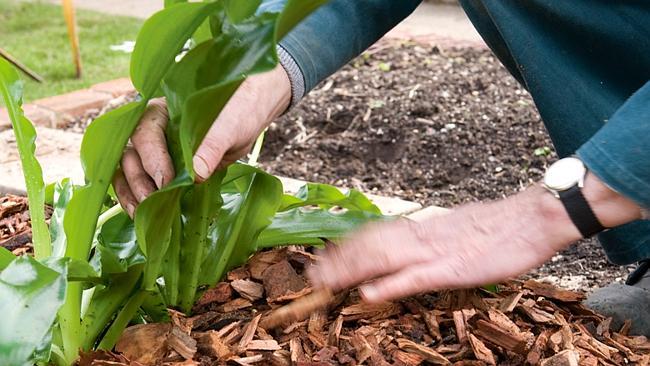Give your garden a fighting chance this summer
WHEN you're going away during January, it can be a challenge keeping your garden alive, especially in areas with hot, dry summers.

WHEN you're going away during January, it can be a challenge keeping your garden alive, especially in areas with hot, dry summers.
While established shrubs and trees will mostly look after themselves, pot plants and the kitchen garden are vulnerable to drying out. A few tips and tricks will help your precious plants survive.
A good, deep soaking followed by a layer of mulch will set up your main garden beds before you go away.
The best mulch has particles larger than 5mm (such as pinebark), to allow any rain to filter through. Fine-particled mulches capture and hold falling water from rain or sprinklers, preventing it from reaching the soil, and therefore the plants' roots. Avoid buying any mulches with added wetting agents as these steal most of the rainfall.
The layer should be no more than 40mm for coarse mulches; the finer the mulch the shallower the layer should be.
Mulches help stop water evaporating from the soil, but research has shown that doubling the mulch thickness doesn't improve performance.
Lawns are tough enough to survive long periods of drought. They might brown off, but quickly revive after rain. Pot plants however, need regular watering to stay alive, unless they are cactuses and succulents. Place them all together in one shady part of the garden where a neighbour can easily water them. Grouping them also increases the humidity around them. Top each pot with pebbles or mulch to help stop water evaporating. You can also spray the foliage with an anti-transpirant, such as Yates Droughtshield, which creates a protective film that reduces water loss from leaves by up to 50 per cent, and lasts for up to 90 days. Applying a wetting agent is another strategy to help water penetrate and hold, increasing the time between waterings. Wetting agents are watered on and last for three to six months. Eco-hydrate and Seasol Super Soil Wetter and Conditioner both combine wetting agent with seaweed, and are Australian made. Saucers under pots provide a small reservoir of water and won't harm plant roots in summer when it's used up within a day or so.
Indoor plants can usually join others outdoors in a shady spot; never in the sun. In apartments, place well-watered pots on a wet towel in the bath or shower, but don't leave them sitting in water.
Pots indoors and out can be drip watered using a soft drink bottle with a couple of pinprick holes, or try the stylish version offered as the Twig prize this month, called Water From a Stone. The soft drink bottles can also help special garden plants survive.
In the kitchen garden, summer holidays, frustratingly, usually coincide with a bounty of produce.
You'll need a neighbour or friend to water every other day (a task traded off against picking rights), or use a drip irrigation system attached to an automatic timer. Mulch well with sugar cane mulch or lucerne. A shadecloth cover above the bed helps lessen the sun's impact.
If the myth-busting facts behind mulches, soils and watering are of interest to you, I highly recommend Good Gardens With Less Water (CSIRO Publishing $34.95) by Kevin Handreck, the Australian soils guru.



